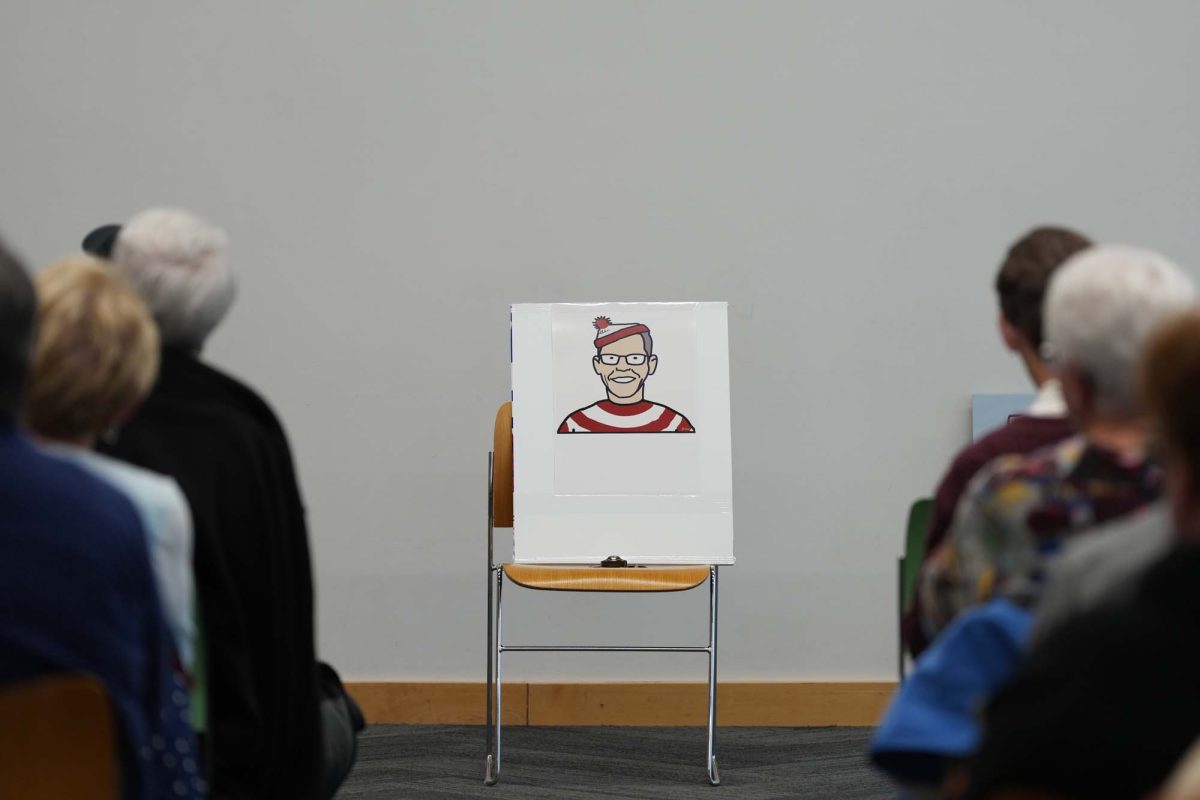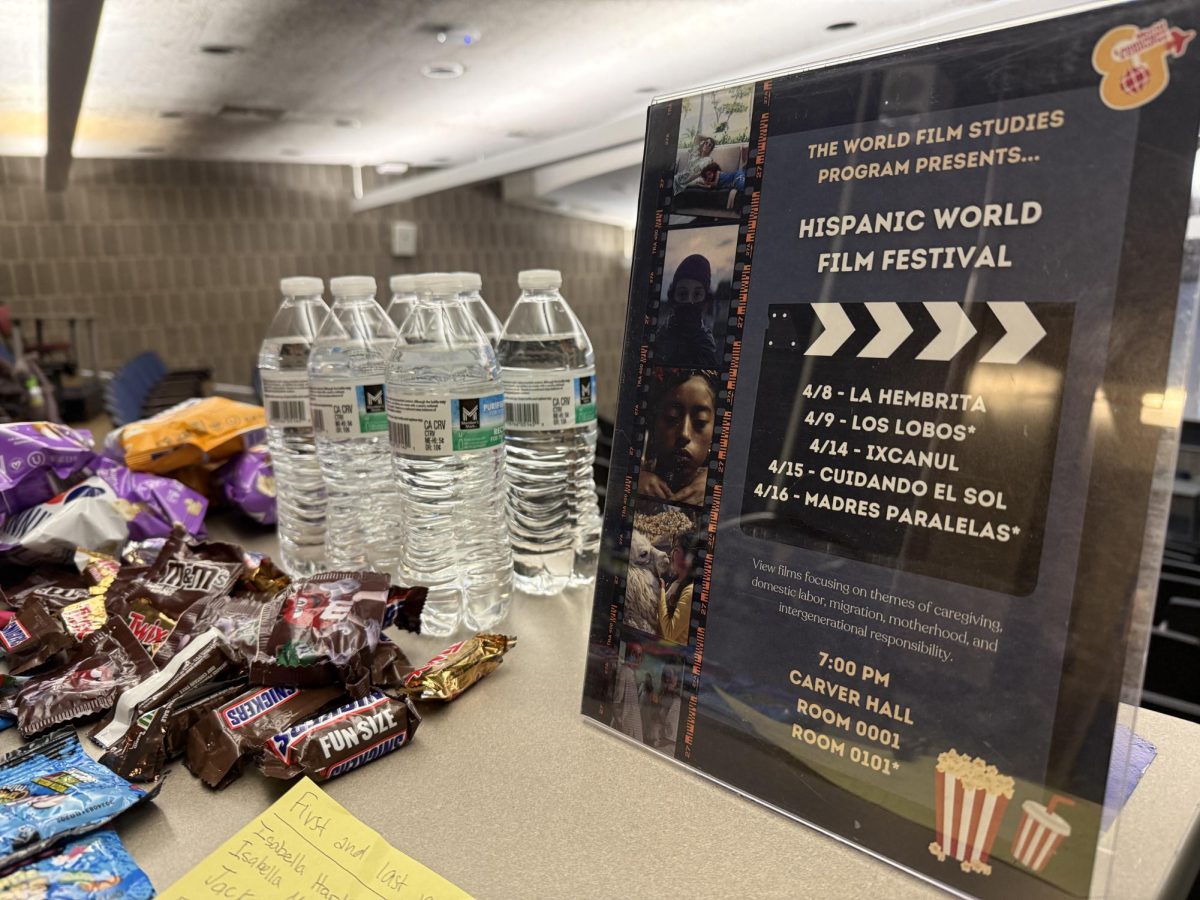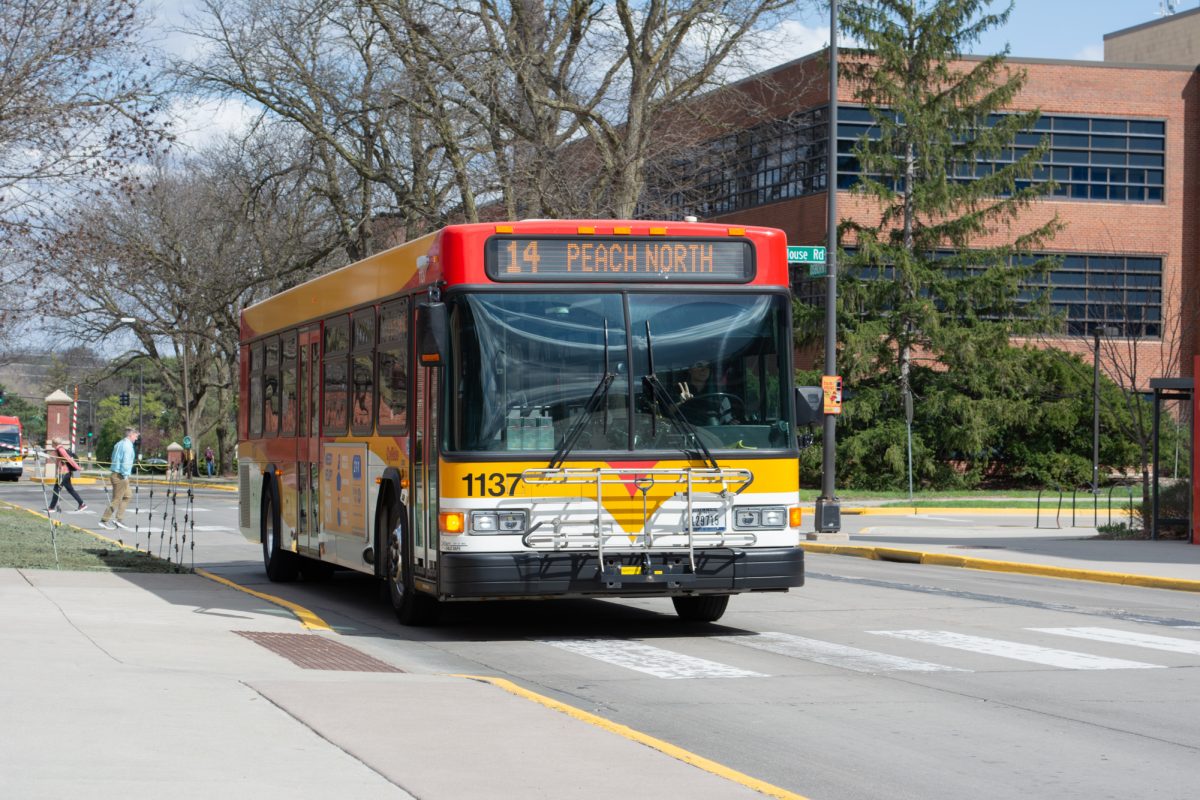Abuse creates problems for internationals
May 3, 2004
Editor’s note: Although the Daily does not generally permit the use of anonymous sources, the identities of Kayla and Thomas, the two principals in this article, have been withheld to protect their safety. “Kayla” and “Thomas” are invented names.
When an abusive relationship is a woman’s only tie to the United States, neither her freedom nor her life is guaranteed.
Such was the situation for Kayla, who is just now starting to feel free, after months of assistance from ACCESS and other services. She sits in her trailer now, her baby crawling over her as a golden plaque bearing the words ‘Lord make me an instrument of your peace’ hangs above her.
Kayla met Thomas in Africa, where they were married for nine months before she followed him to America and Iowa State, where he is a student. Her two children from a previous marriage had to stay behind to be cared for by relatives until she could afford to bring them to Ames.
Despite the difficulty of adjusting to the new culture, the hardest part of her life was her marriage. Thomas had started drinking in Africa and had become violent. Such violence wasn’t criticized at home, and she didn’t realize it was a problem until she arrived in the United States.
“He wasn’t in trouble back home. Nobody cared. It’s OK there,” Kayla said.
“As long as you’re not killed [by violent behavior in Africa], it’s OK. And if you are, they’re sad you got killed.”
She said she was aware help was available for her in Ames, having seen a sign for Assault Care Center Extending Shelter and Support Agency of Ames while riding the bus.
“I didn’t memorize the number. I didn’t pay too much attention, but I knew it was there,” she said.
Her friends encouraged her to stay with Thomas. He had brought her to America, after all. It was almost as if she owed him for the trip.
“When he’s not drunk, you’d think he’s a super man, but when he’s drunk, he’s the worst,” Kayla said.
Her first step toward freedom came more than two years ago. Thomas came home in a rage one night, hitting her, pulling her hair, and slamming her into walls despite the fact that she was four months pregnant. Kayla called the police that night.
ISU Police Capt. Gene Deisinger said if injuries are evident during a domestic disturbance call, the person apparently responsible can be taken into custody.
Although Thomas was arrested that night, Kayla said he held child support and the status of her visa over her head to keep her from pursuing charges.
Every month Thomas had been sending support home to her two children still in Africa, which he threatened to cut off, and the charge against him could have interfered with him being allowed to stay in Ames. She was under his control. She didn’t want to leave the United States.
“They’re under incredible fear they will be sent back,” said Jay Kamath, executive director of the Legal Aid Society of Story County.
So she let him come home. He promised to change.
He was reluctant to bring the two remaining children because of the financial burden, but Kayla eventually won.
According to court records, Thomas has been convicted of operating while intoxicated and several charges involving driving without a license. At one point, according to court records, he hit a car while driving drunk without having a license or having licenses for the automobile he was in. Because of court costs for the incidents, Kayla found herself seeking out programs such as ACCESS, an assault care center in Ames, to get the money to feed her family in addition to help with the abuse.
He didn’t change, however. The drinking and violence persisted.
The final straw came when Thomas came home one night demanding food. Although Kayla hurried to cook something for him, he continued to hound her, she said. He pushed her and scratched her across her face. When she threatened to call the police, he threatened to cancel her visa, and have her sent home. Kayla realized she didn’t care any more.
Instead of calling the police, Kayla contacted ACCESS and started divorce proceedings. She thought this way would be kinder, since legal trouble could threaten his visa.
Kayla has been officially separated from Thomas for about six months. She thought this would buy her the peace she had wanted. She was wrong.
“Since we separated, it has been like a nightmare,” Kayla said.
She obtained a no-contact order against Thomas, an order he has violated repeatedly, she said.
Struggling to move on from her divorce from an abusive husband, Kayla now has help on new visa papers to allow her to stay in this country — she’s terrified of returning home.
The process of having a visa considered can take months or even years, during which the victim is free to remain in the United States.
“[Thomas] wants me to go back so he can abuse me properly. You know, finish his mission,” Kayla said.
It’s the reason she is working so hard to stay in the country.
“A lot of them want to stay because there are repercussions for going home,” said Sara Stevenson, community outreach coordinator for ACCESS.
Kayla said she’s also worried about her children. If she were sent home, she would have no way of supporting them or herself.
Her children have forgotten much of their native language, and her oldest child is nearing an age when she would be expected to take a placement test to continue her education. With the differences between education systems, Kayla worries about the possible outcome of the test.
One of Kayla’s best weapons has been ACCESS.
This service has been arranged to be an advocate for victims inside and outside of the shelter. It offers legal, medical, social, survival counseling and children’s services.
“Domestic violence is a problem here,” Stevenson said.
“Unfortunately, it’s also a cross-cultural phenomenon. It happens across a broad range of countries on every continent. You would hope somewhere would be better, but it isn’t.”
Most abused people don’t realize help is available, she said. Sometimes abusers will say the police will arrest them if they call, she said.
Another problem comes from the wording of the laws themselves.
“They must be the victim of a criminal act in order to get a visa of their own and status independent of their abuser,” Stevenson said.
This can prove to be difficult because “substantial abuse” must be proven. The wording can be vague, providing little clarification, she said.
Stevenson said the only thing many abused women can do is find as much evidence as possible in the form of pictures and psychologists.
ACCESS works with victims to get them temporary visas to keep them in the country, although Stevenson said this does not completely solve all of victims’ problems. Getting a work permit is often vital to allow them to support their family. She said some women come up with creative ideas to earn money, such as baby-sitting for neighbors.
“We want the victim to understand that they don’t have to be with the abuser, and that doesn’t mean they have to go home,” Stevenson said.
She said this problem is more difficult in communities like Ames where abusers are often students. Sometimes, the assumption is that the victims are only here temporarily anyway, or that they would prefer to go home, Stevenson said.
“I see more and more need every day,” she said.
One of the first sources most victims will encounter when things get too violent are the police. If they live in university housing, this means the ISU Police.
Deisinger said the first thing the police do when arriving at a domestic violence situation is to separate the two parties and attempt to get the entire story from both. If no injuries are apparent, things can be a bit more difficult, he said, but the police do as much as they can.
After their initial response to the situation, Deisinger said police generally inform student counseling, the dean of students and financial counseling within the university, as well as ACCESS, to assure the situation will be handled the best it can be.
Even if no arrest is made stemming from the disturbance, the police will suggest someone leaves for the night so things won’t flair back up.
“We can’t force them to leave. That doesn’t mean we don’t advise them strongly,” Deisinger said.
If a person is taken into custody, Deisinger said he or she is transferred to the Story County Sheriff’s Office as soon as possible, and the case is turned over to the judges and attorneys to decide.
The Legal Aid Society of Story County has handled cases involving ISU graduate students from foreign countries involved in domestic abuse in the past year.
Executive director Jay Kamath said many believe they will be sent home the next day or week if they report the abuse. Others fear cutting off their only line of financial support.
Kamath said it is difficult to keep up with the constantly changing laws. Overall, he said, he believes the laws are changing for the better.
Kayla continues to battle Thomas, she said.
“He just won’t let go of a dead marriage,” Kayla said. But she said she is enjoying her newfound freedom.
“I don’t feel like my life is in someone else’s hands. I have control. I haven’t had that in a while.”






